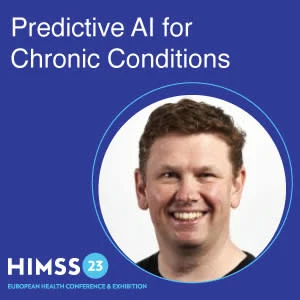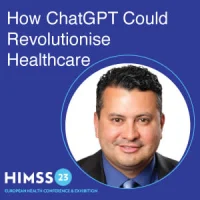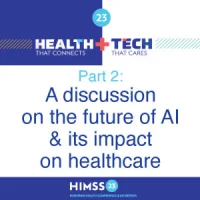Craig Turpie, Co-Founder and CEO of Lenus Health, spoke about the importance of predictive artificial intelligence for managing chronic conditions.
Healthcare is at a pivotal moment where predictive AI can be safely and effectively integrated into clinical workflows. He pointed out how they are developing and deploying explainable AI into medical practice, identifying high-risk patients, enabling early intervention, and preventing unnecessary hospital admissions.
According to Craig, they are targeting chronic obstructive pulmonary disorder (COPD) and heart failure because both pose a significant clinical and financial burden. In Europe and the U.S., 30% of patients with chronic conditions account for a staggering 70% of healthcare expenditures. The care for COPD and heart failure is often disjointed with fragmented patient data, leading to inadequate care and high hospital readmission rates.
Considering population ageing, this will only worsen, and therefore, transformative care models that incorporate AI will become even more essential. Craig points out that a three-pillar disease management solution tackles these challenges. First, it is important to diagnose and optimise diagnostic pathways and reduce unnecessary appointments and tests. This way, more tests can be conducted in community centres with complex cases reviewed by specialists. This can help reduce waiting times, expedite treatment, and help gather structured patient data to help advance AI work and support further research.
Second, risk stratification models should be used to support patients principally with respiratory diseases. These models, integrated into clinical workflows, are being evaluated as part of a clinical study and provide risk scores for mortality, hospital admission and short-term risk.
With over 80 features trained with over 100,000 patient records, these models empower care teams to allocate resources by prioritising patients where interventions will have the greatest impact.
Introducing these risk scores has enabled the world's first AI multidisciplinary team for COPD patients to transform lives and be more preventative and proactive. Craig explains that these models provide explainability features, allowing clinicians to interrogate the models and predictions for patients. Third, treat these pathways with clinicians equipped with digital tools, remotely manage high-risk patients, and improve care coordination across settings.
This diagnose, stratify, and treat framework is self-reinforcing. As patients go through thse pathways, more data is generated to refine the risk stratification models. Consequently, the increased influence of firewalls allows the identification of high-risk patients more accurately, leading to enhanced interventions.
He pointed out that their efforts towards bringing predictive AI into clinical workflows are driven by the conviction that healthcare is on the verge of a transformative shift due to the potential predictive AI. By leveraging AI and diagnostics and risk stratification as treatment pathways, they are achieving remarkable results, including earlier diagnosis and initiation of treatment, enhancing care coordination across multiple settings and generating valuable structured data for further research. Putting healthcare data to work has never been more possible, and it's never been more necessary, he concludes.
Source: HIMSSEurope23









